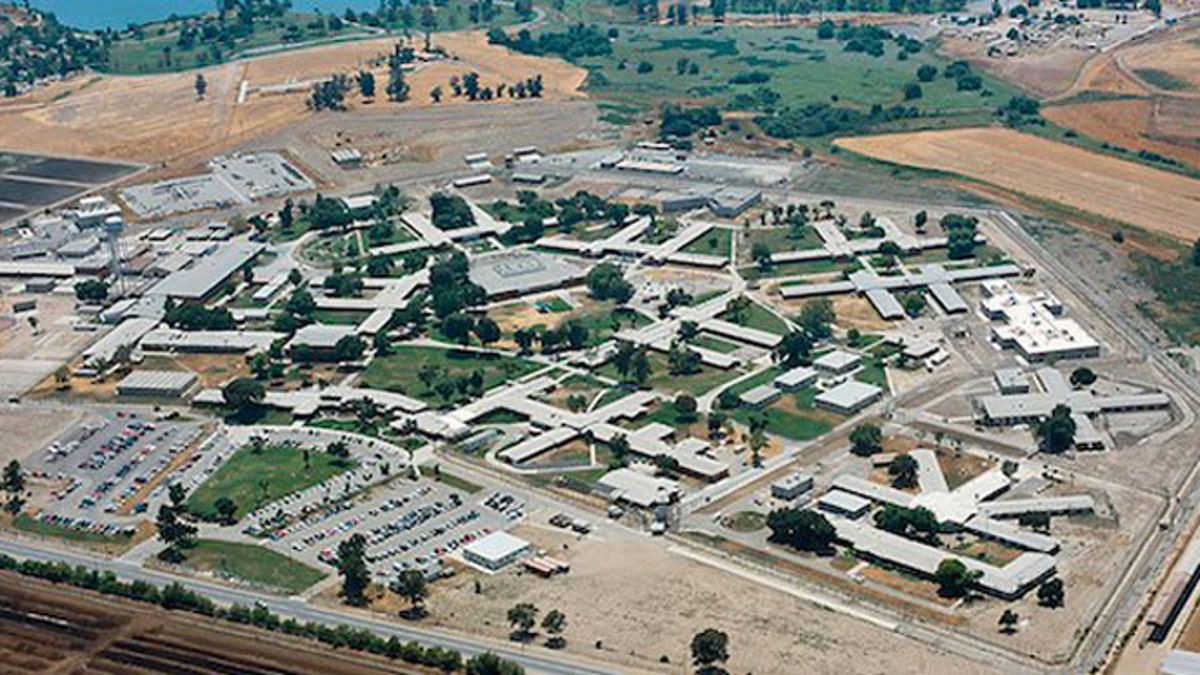
California Department of Corrections and Rehabilitation in Corona, Calif., is one of two state prisons where female inmates were sterilized without required state approvals. At least 148 women received tubal ligations in violation of state law from 2006 to 2010. (California Department of Corrections and Rehabilitation in Corona)
WASHINGTON – California lawmakers are demanding to know why doctors under contract with the California Department of Corrections and Rehabilitation sterilized nearly 150 female inmates in four years without required state approval and, as some claim, strongly pressured or even tricked some of the women into signing off.
One doctor even allegedly suggested that the procedures would help the state save on welfare.
While not part of a formal sterilization program, the surgeries were performed with alarming frequency. At least 148 women in the California prison system were sterilized by tubal ligation without state approval between 2006 and 2010, confirmed Joyce Hayhoe, director of legislation for the California Correctional Health Care Services. The story was first reported by the Center for Investigative Reporting.
Tubal ligation is when a woman’s fallopian tubes are clamped and blocked or severed and sealed, which then prevents eggs from reaching the uterus for fertilization. The procedure is considered permanent and requires patients to undergo general anesthesia.
"Pressuring a vulnerable population — including at least one documented instance of a patient under sedation — to undergo these extreme procedures erodes the ban on eugenics," the California Legislative Women's Caucus wrote in a letter to the federal receiver in charge of prison healthcare.
Though the women technically signed consent forms, there are now allegations that they were pressured or tricked.
“One situation occurred when a doctor asked his patient to agree to a tubal ligation when she was sedated and strapped to an operating table for a C-section,” state Sen. Ted Lieu wrote in a July 10 letter to the Medical Board of California. “Other incidents involved doctors repeatedly harassing and pressuring inmates to get tubal ligations.”
The operations were performed at outside hospitals and medical facilities by doctors under contract with the corrections department. The unauthorized sterilization involved inmates from the California Institution for Women in Corona and Valley State Prison in Chowchilla. The operations are only allowed if medically necessary, which the sterilizations were not. Doctors were paid $147,460 to perform the procedures.
“The first priority we had was to stop it from taking place, which we did in 2010,” Hayhoe said, adding that the female prisoners had all signed a consent form for the surgeries.
“We’ve been assured that this practice hasn’t occurred since (2010), but the question of course is why was this occurring?” state Sen. Hannah-Beth Jackson of Santa Barbara, who also signed Lieu’s letter, told CIR. “We want to make absolutely sure – whether we have to do legislation or what – this procedure never becomes the practice it had in the past.”
Former Valley State Prison inmate Crystal Nguyen worked in the prison’s infirmary during 1997. According to CIR, Nguyen told investigators she often overheard members of the medical staff asking inmates to agree to be sterilized.
“I was like, ‘Oh my God, that’s not right,’” Nguyen, 28, said. “Do they think they’re animals, and they don’t want them to breed anymore?”
Lieu, chairman of the Business, Professions and Economic Development Committee, which oversees the medical board, singled out Dr. James Heinrich, at Valley State Prison, in his letter to the board.
“Particularly troubling was a statement by Dr. James Heinrich, OB-GYN at Valley State Prison, who made a reference that tubal ligations on inmates save in welfare paying for these unwanted children – as they procreated more," Lieu wrote. He continued: “Whether a surgical procedure would have any hypothetical effect on welfare rolls should never, ever play a part in a doctor’s decision.”
Calls to Heinrich and the California Department of Corrections and Rehabilitation were not immediately returned.
At least 10 other women have filed complaints with Justice Now, a prisoner advocacy group, claiming they were sterilized improperly in procedures that included having their ovaries removed.
Kelli Thomas was an inmate in Chowchilla when she went into surgery for a biopsy and to have two cysts removed, the Los Angeles Times reported. She signed off on having her ovaries removed if doctors found cancer but expressed that she wanted to have children in the future. According to her medical records, Thomas was cancer-free but her ovaries were removed anyway.
“I feel like I was tricked,” Thomas told the LA Times. “I gave permission to do it based on a (cancer) diagnosis, and the diagnosis wasn’t there.”
News of the unauthorized and unnecessary sterilization comes at a time when thousands of inmates across California continue to refuse food as part of the state’s largest hunger strike.
Initially, more than 30,000 inmates had participated. They are protesting lengthy stints in solitary confinement as well as improved prison conditions. Prisoners could be force-fed if a court order is issued, but there hasn’t been one issued yet.












































